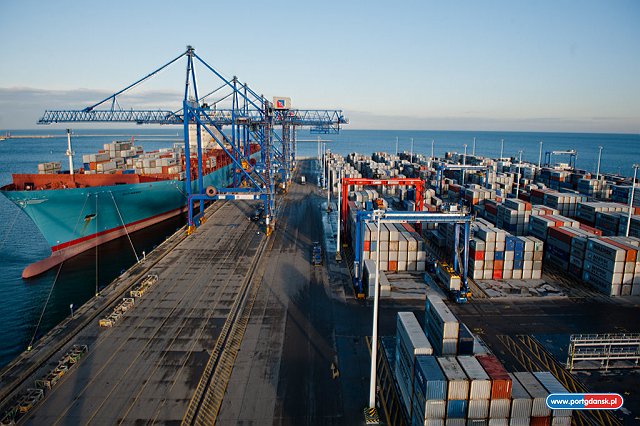The port authorities of Gdansk and Ukraine have signed a letter of intent regarding mutual co-operation in Odessa in October.
The Port of Gdansk Authority SA and the Ukrainian Sea Ports Authority inked the deal on 13 October in the belief that through their agreement they will strengthen co-operation and increase the competitiveness of both ports in respect of their cargo facilities.
“I trust that the co-operation between the Port of Gdansk and the administration of Ukrainian seaports will become the foundation for a common intermodal corridor,” said the Polish minister of infrastructure, Andrzej Adamczyk and went on to underline that “the memorandum fits perfectly into the concept of the Three Seas Initiative, but also the Trans-Caspian Corridor.”
The agreement between the Port of Gdansk and the Ukrainian Sea Ports Authority was signed in the presence of the presidents of Ukraine and Poland, who opened the Ukrainian-Polish Transport and Logistics Forum in Odessa. The meeting was also attended by the ministers of infrastructure of Poland and Ukraine.
“The ports of Ukraine and the Port of Gdansk have decided on an exchange of knowledge and experience, which in the future can optimise the logistics chains and therefore increase the volumes of goods transhipped by the ports and contribute to better trade relations between the countries,” commented Lukasz Greinke, president of the Port of Gdansk Authority SA.
The Ukrainian Sea Ports Authority was established in 2013 and its headquarters is in Odessa, Ukraine’s largest port. It can accommodate vessels of lengths up to 330m, with a draft of up to 13.5m and width up to 50m. There are a total of 55 transhipment quays in the port area, which includes two container terminals, designed to handle over 650,000TEU annually.
Although the ports of Ukraine and Poland are in different geographical locations and operate in different regional waters, their mutual needs and goals are very similar, according to a statement.
One of the priority directions is seeking and attracting transit cargo, for example from Central Asia or Turkey, according to the Port of Gdansk.







